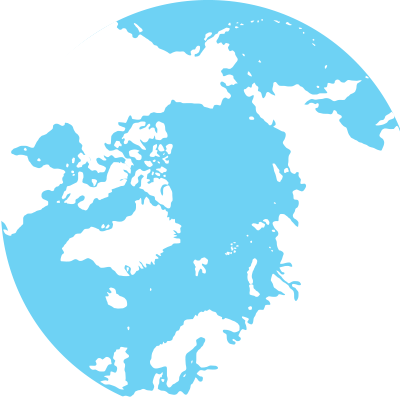Stakeholder Engagement Portal
Choose a topic area to get started.
You can select a pole by clicking on the circular map and refine your search by choosing specific tags.

Why?
Why is it important to engage stake- and rights holders in research planning and execution in the Polar Regions?
Climate-change induced impacts occurring in the Polar Regions are complex and have far- reaching consequences for those affected, particularly Arctic residents and others working in the Polar Regions. To better understand the underlying processes and their impacts, it is crucial to bring together multiple disciples to investigate the complex physical and ecological changes and their societal implications. As these changes have implications for and impacts on residents in the Arctic, particularly Indigenous
Peoples, and others who are working in the Polar Regions, it is crucial to involve these stakeholders and rights holders in planning and execution of research in the Polar Regions.
We can distinguish between stakeholders who have interests in or are working in the Polar Regions, including non-Indigenous Arctic residents, for whom the changes are affecting their living and/or working conditions, and Indigenous Peoples, who have lived in the Arctic for thousands of years and have an intimate connection to and understanding of their area and a generations-long knowledge of the conditions.
Engagement of stakeholders in planning research projects can provide important insights into conditions and issues that are relevant to the proposed topic of research that may not be apparent to outside researchers. They can help formulate the objectives and plan for the research as well as provide valuable expertise if they decide to take part in the research activities, either directly or in an advisory role.
For Indigenous rights holders, proposals for research on their lands clearly require acceptance and participation by Indigenous representatives, both because such research has direct implications for them as well as because they can provide valuable background and context to the objectives and design of the research. Inclusion of Indigenous knowledge holders must follow ethical guidelines and other relevant procedures, as described in this link.
How?
This portal provides support to researchers to decide which stakeholders and/or rights holders they would be beneficial to engage and have two-way dialogue in planning and conducting the research in Polar regions. It will not decide on behalf of researchers but it’s aimed for sharing information and for helping the decisions made by projects and researchers themselves.
How it works?
First choose from two regions Arctic and Antarctic the area which you are interested in. You can filter the resources with search by choosing tags such as Indigenous Peoples, Industry, Tourism etc. If you don't insert any tags, you will get all materials available under each topic: Identifying, What role?, Dialogue, Resources & Opportunities, Support and Continuous collaboration.
Please note that Russia is not included at the moment to the tool, however we recognise its importance in climate change research and if it will be possible to restart the cooperation and research in the Russia, the tool will be edited accordingly.
